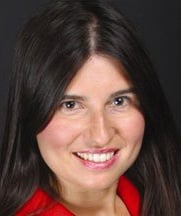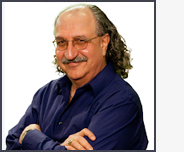They call him Slim, a nickname based off his trading floor badge acronym "SLM" that he wore in 1974 after purchasing a CBOE membership seat for $35,000. Steve Miller has spent the last 40 years trading futures, stocks and options both on and off the Chicago trading floors. After 10 years trading on the CBOE floor he moved next door to trade futures becoming a member of the Chicago Board of Trade in 1981. He expanded his trading experience and skills by trading corn, soybeans, 30-year bonds and bond options on the floor. The following year Slim began trading S&P futures contracts after their launch in April 1982.
Just as most traders go through transitions in their trading approaches, he found his methodology was better suited to off-floor trading and he moved upstairs to trade off the screen in 1984. At that time, technology was a mere shadow of what retail traders have available to them today —and all orders were still sent to the trading floor by telephone. Later, as a member of the Chicago Mercantile Exchange Index and Options Market, Slim placed his own team of brokers in the S&P pit.
Throughout his trading career, Slim has also actively coached numerous traders. He has lectured on the topics of cyclical and technical analysis of the financial markets. He remains active in the markets trading futures, stocks, and options for his own account. I had the opportunity to sit down and talk with him.
Tell us how you got started in trading?
At the age of 20, in 1970, I started a retail business, and by 1974 we had five pants and tie stores in malls. I had an older partner whose son was working for us in the summers while he finished school at Princeton. In 1973 he began talking about the new exchange, the CBOE. He was very interested in the markets as was his father (my partner). I loved the discussions, it was a lot more interesting than retail. In 1973 the son became a member at the CBOE and shortly afterward, so did his father. That left me running the business on a daily basis. I was strongly drawn to join them. In May 1974 I bought my CBOE seat.
What is your business focus now?
For the past three years I have been the host of Ask SLM on the tastytrade network. Though I still trade daily, I have a strong focus on consulting hedge funds, coaching traders and educational media in the financial world.
What is your trading approach?
Technical – with a strong emphasis on cycle analysis. In 1975, I had been trading over a year and I was visiting the drummer that was with the rock band I played with in high school. He had read a book about market cycles that he found interesting; “Profit Magic of Stock Transaction Timing,” by JM Hurst. I read the book and have been studying cycle analysis ever since. After 40 years, I am still often astounded of the value of this form of analysis. It’s an art form rather than science. Cycle analysis adds a “time” dimension to charting, which few studies offer. It measures movement from key low to key low, often reflecting repeating patterns. It is a visual depiction of the flow of money, clearly showing trends.
Do you have a favorite market?
I trade stocks, equities and futures. I have always been a short-term trader, so futures really lend well to that style. Still, my background in options has me always doing trades in that market also.
What are some of the advantages of trading futures?
Fast moves, deep markets, huge leverage.
What is the most important lesson you've learned about trading?
Success comes when focus is less on making money than on executing within the designed plan.
When trading is done to answer a need in our life, outside of trading success will disappear quickly.
Controlling losses is extremely important. But understanding what drives those bad trades, within ourselves, is the key to long-term success.
What is your favorite thing about trading?
Self-sufficiency.
What advice do you have for beginning traders?
Plan on a long learning curve. Do not trade for monetary results to start; in fact, expect and accept that learning will have a cost. Make sure you have income outside of trading to cover the bills to avoid stress and emotional triggers. Dedicate yourself to learning the markets. Experiment with style and trading vehicles to find your interest and comfort zone.
What important trends do you see in the futures markets right now?
The clearest trend in futures has been the strong dollar versus all other major currencies. That continues, though longer patterns suggest a reversal and a much weaker dollar in the second half of 2015. That coincides with an inverse correlation to gold and silver. I expect precious metals to have a very good second half this year.
How has the trading industry changed in recent years?
High frequency trading (HFT) has taken a lot of the noise out of the market and narrowed spreads. That makes scalping very difficult and momentum trading more important.
Since the end of floor trading, we are really all retail traders. What's changed is the edges we were used to are gone, and now we live with tighter ranges and narrow bid/asks. That is immensely favorable for execution costs. It's hardly compensation for loss of opportunity. For the retail investor, the cost savings is huge.
What still needs to change?
Overall, while changes have made it much tougher on the trader, changes have been very beneficial to retail investors. Still, I would like to see the HFT edge disappear.
What do brokers and tech providers need to do better for individual traders?
Many are very far behind in accounting and technology.
Retail investors could be helped by software and education that guides them to be more self-directed.
In a ZIRP world, or very low interest rates, money in the bank loses value daily. So if there were technology that suggested conservative option strategies, “covered writes” for cost-basis reduction, etc, retail investors could use even a small portion of their savings to have much better returns.
Past performance is not necessarily indicative of future results. Due to the volatile and leveraged nature of commodity markets, the risk of loss in trading commodity futures contracts is substantial and is not suitable for all investors.




